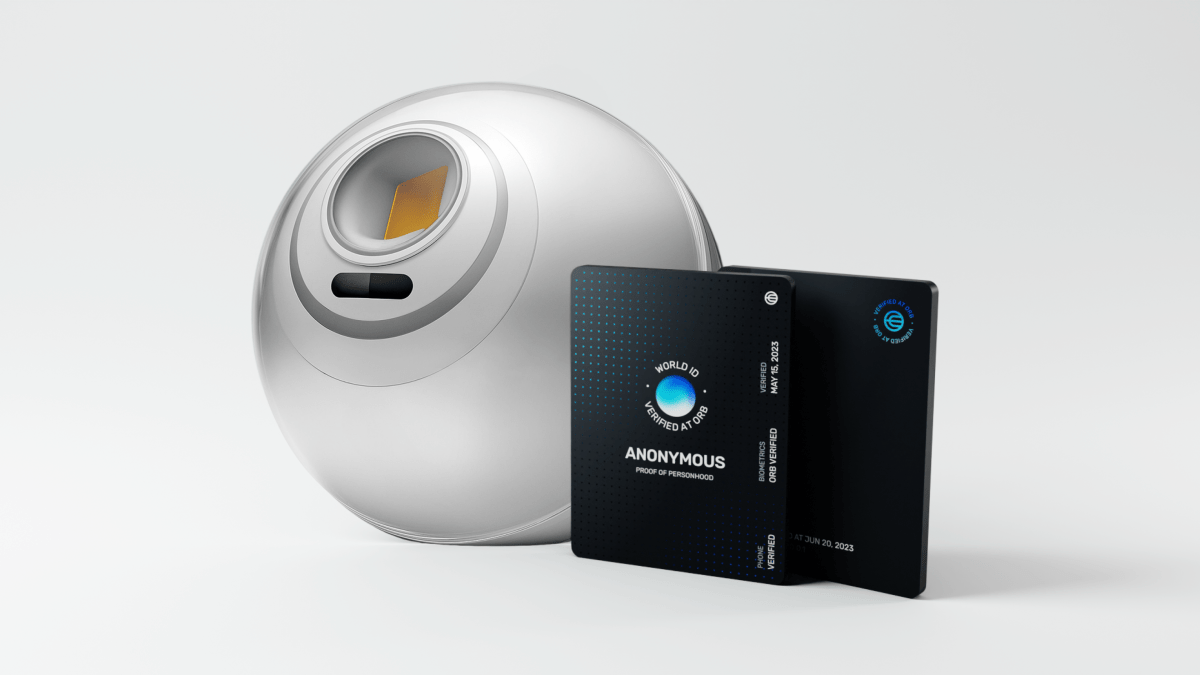- Worldcoin, the controversial crypto startup, has distributed 43 million worldcoins to users who signed up during the pre-launch period.
- However, the majority of the tokens distributed in the launch are being loaned to market makers, who are trading firms that buy and sell large amounts of tokens.
- These market makers will help promote trading of Worldcoin's new tokens and make money on the spread.
- The move to involve market makers in the token launch highlights Worldcoin's efforts to create liquidity and increase trading activity.
- This aspect of Worldcoin's token launch has been overlooked amidst the controversy surrounding the company's use of eyeball scanning technology.
Main topic: Kenya suspends Worldcoin enrollment and expresses concerns about its activities and data protection.
Key points:
1. Kenya was one of the first countries to launch sign-ups for Worldcoin.
2. The Ministry of the Interior has suspended Worldcoin enrollment, citing concerns about authenticity, legality, security, financial services, and data protection.
3. Kenya had numerous venues for Worldcoin enrollment, but now there is only one due to overwhelming turnout.
4. Relevant agencies are investigating the authenticity, legality, and data protection of Worldcoin's activities.
5. Worldcoin is co-founded by OpenAI CEO Sam Altman and has raised over $500 million.
6. Worldcoin registers "verified humans" through eye scans and offers free crypto tokens in exchange.
7. The suspension order's impact on the circulation and trading of Worldcoin tokens in Kenya is unclear.
8. Worldcoin tokens have become part of the grey market in Kenya.
9. The authorities are now considering the privacy, security, and financial transaction implications of Worldcoin.
10. The suspension follows an assessment by the country's office of the Data Commissioner.
11. Concerns have been raised about Worldcoin's practices and exploitation of economically-disadvantaged people.
12. Worldcoin has enrolled over half a million people in the last seven days and nearly one million in the last month.
Main Topic: Worldcoin, a nonprofit foundation aiming to create a new form of digital identification and financial network based on cryptocurrency, is scanning people's irises in various locations worldwide.
Key Points:
1. Worldcoin uses silver orbs to scan people's irises, aiming to create a unique digital identification based on biometric data.
2. The foundation offers free cryptocurrency to participants in exchange for their iris scans, attracting both anti-surveillance protests and enthusiastic sign-ups.
3. Worldcoin's long-term goal is to integrate its technology with other companies and expand its use cases, such as identity verification for voting, shopping, and banking.
Worldcoin, a company aiming to sign up the global population for a decentralized form of identity, is facing scrutiny and criticism over its methods of collecting biometric data and possible privacy violations, as well as concerns over its aggressive marketing tactics and the potential exploitation of impoverished individuals in third-world countries to sign up for its services.
Governments around the world are investigating Worldcoin, a crypto project co-founded by OpenAI CEO Sam Altman, over concerns about its data collection methods and potential risks to public safety.
OpenAI is reportedly in discussions with Jony Ive and SoftBank to secure $1 billion in funding to develop an AI device that aims to be the "iPhone of artificial intelligence," drawing inspiration from the transformative impact of smartphones, according to the Financial Times.
More than 200,000 Chileans have had their eyeballs scanned by Worldcoin's controversial Orbs, earning them WLD tokens that have a monetary value and sparking debates about privacy and economic incentives.
OpenAI CEO Sam Altman believes that Bitcoin is a logical and important step towards a global currency free from government control, which can help combat corruption and reduce hindrances to progress in society. Altman and podcast host Joe Rogan express optimism for Bitcoin's potential as a universal viable currency, but they express concern and opposition towards central bank digital currencies (CBDCs) due to fears of increased government control and surveillance.
OpenAI is in talks to sell shares and complete a deal valuing the company at $90 billion, but securing Middle Eastern investors may be crucial due to US investors being wary about the high price and the recent conflict in Israel potentially affecting fundraising from sovereign wealth funds in the region.
Worldcoin, a project led by Open AI chief Sam Altman, aims to bring unbanked individuals into the economic fold by offering them crypto tokens in exchange for their biometric data, raising concerns about privacy and control over digital identities. The use of tokens, which come with limitations and rules, threatens to replace traditional money and restrict people's freedom of choice, while also enabling surveillance and manipulation by digital platforms and governments.
